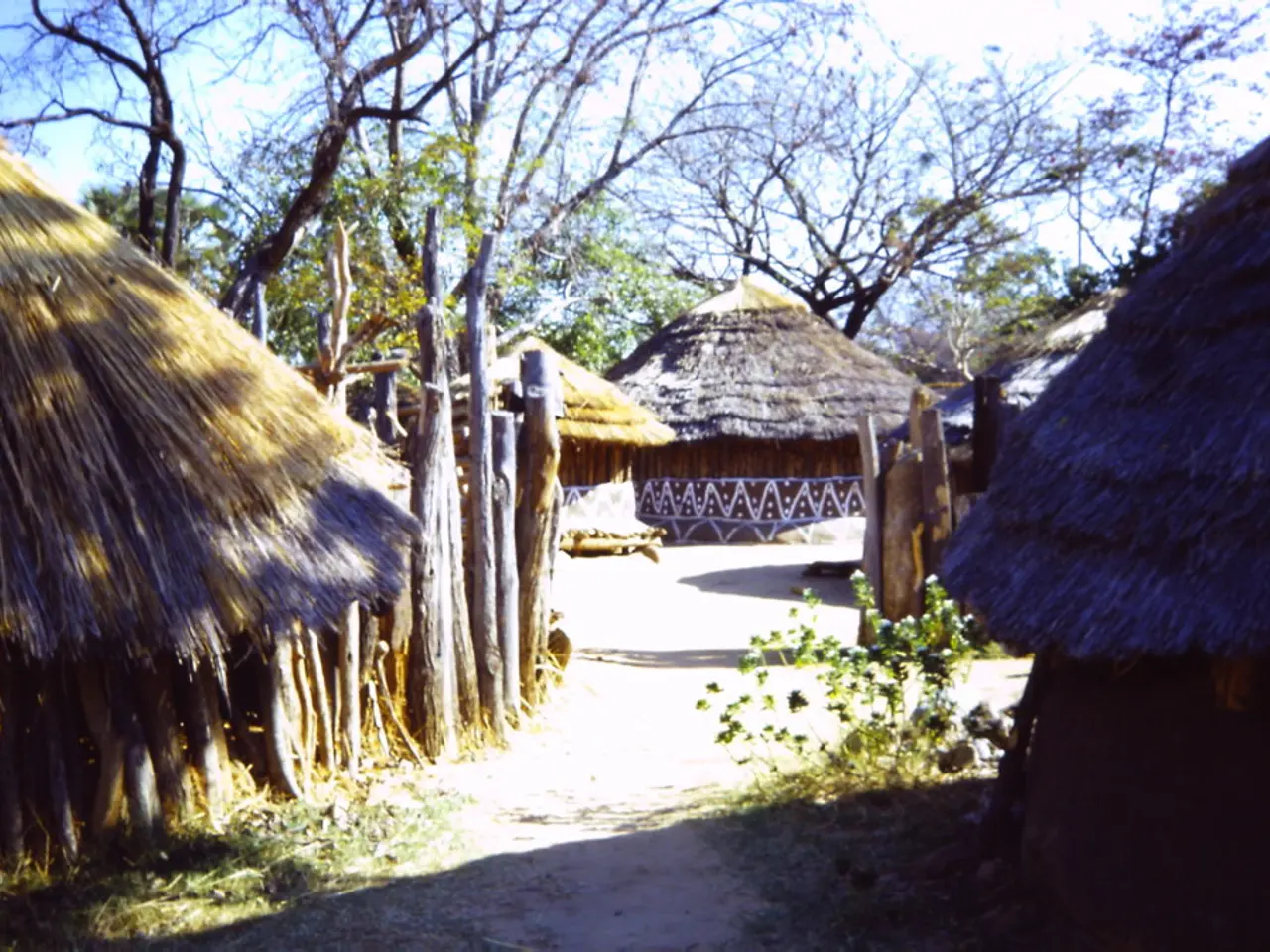Pregnant Woman Conveys to Hospital without Transportation, Delivers Baby before Arrival
In the remote village of Barigwan, home to around 70 tribal residents, the monsoon season brings about a significant hardship. With the lack of access roads, residents are forced to wade through rivers and mud to reach schools, health centers, and markets[1]. The difficult conditions pose a significant risk to the lives of children, who risk their lives daily to attend school, and pregnant women, who face dangerous, arduous journeys to reach hospitals during emergencies[1][2].
Recently, eight pregnant women from different villages, including Barigwan, led a protest demanding road access[2]. One such woman, Preeti Rawat, gave birth to a child in an ambulance parked two kilometers away from her village due to a lack of road access[1]. Preeti was carried in a makeshift 'doli' (cot) through slippery terrain during monsoon before reaching the ambulance[1].
Leela Sahu, a local influencer and activist, spearheaded the protest[2]. Sahu, who is now 9 months pregnant, posted a video from her village Khaddi Khurd, asking for help: "MP ji, you said you'll pick us up, so please do. Send the helicopter now." [1]
The Chief Medical and Health Officer, Dr Babita Khare, admitted that the ambulance arrived on time but couldn't enter Preeti's village due to a lack of road connectivity[1]. Social worker Prabhat Verma called the situation "deeply shameful," highlighting the potential danger if the family hadn't acted swiftly to get Preeti to the ambulance[1].
Political responses to the crisis have sparked controversy. Sidhi BJP MP Dr Rajesh Mishra’s remark that women would be "picked up before delivery" instead of promising immediate road construction drew criticism for seeming insensitive and illustrating a disconnect between policymaking and ground realities[1][2][4]. Mishra later clarified that a road construction proposal was submitted to the central government in 2024 and accepted, with a plan for a 5-km road under the Pradhan Mantri Gram Sadak Yojana (PMGSY) pending state-level approval, expected to begin within 17 months[3].
PWD Minister Rakesh Singh acknowledged the difficulties and emphasized the challenges of road construction, noting the need for durable infrastructure and explaining the bureaucratic and financial constraints delaying progress[1][3]. A survey by the Madhya Pradesh Rural Road Development Authority has been completed, and a formal proposal under PMGSY is awaiting state clearance[3].
Until roads are built, ambulances and ASHA workers remain the stopgap solutions, though they are inadequate during rainy seasons and emergencies[1][3]. The terrain, security concerns due to local insurgency, and procedural steps contribute to slow progress[2].
Preeti and her child are currently stable at Semriya Hospital. However, the ambulance could not navigate the muddy, broken path to Preeti's village, and she delivered her baby right there in the ambulance before reaching the hospital[1].
The ongoing struggle for road connectivity in Sidhi remains a pressing infrastructural and humanitarian concern, especially impacting pregnant women’s access to healthcare. While central and state governments have initiated proposals and surveys for road construction, actual implementation faces delays owing to bureaucratic and logistical challenges. Meanwhile, villagers continue to endure significant hardships, highlighting the urgent need for accelerating infrastructure development in the region[1][2][3][4].
The growing online outrage has been met with indifference by some political figures. PWD Minister Rakesh Singh responded to the criticism with a dismissive comment: "If someone puts a post on social media, should we arrive with a dumper or a cement plant? That's not how it works." [3]
- The lack of roads in the village of Barigwan, as well as other surrounding villages, impedes not only access to basic necessities like schools, health centers, and markets, but also poses a significant risk to the health and wellness of its residents, particularly pregnant women, who face dangerous journeys during emergencies.
- The growing online outrage over the dire road conditions in Sidhi, with specific focus on its impact on pregnant women's access to healthcare, calls for an increased emphasis on science and evidence-based policymaking to address this pressing infrastructural and humanitarian concern in a timely and effective manner.




